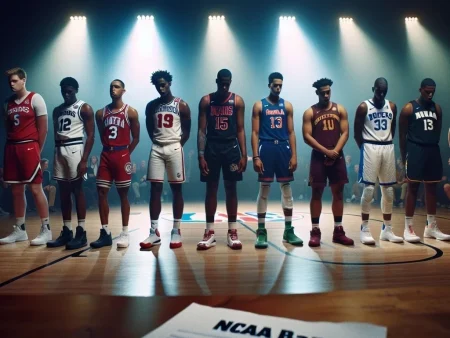Dive into the world of sports betting VIP programs, exploring their perks, ethical dilemmas, and the fine line between loyalty rewards and addiction.
The Ethical Implications of Sports Betting VIP Programs
Wellcome Offer:
200% up to $2,000
+ 100 Free Spins
The winnings from your free spins will be credited as bonus funds. Exclusively available for new players with fair wagering requirements.
Wellcome Offer:
250% Bonus up to $5,000
+ 100 Free Spins
Claim your bonus and spin your way to big wins! Minimum deposit of $20 required. Wagering requirements apply. Bonus valid for 30 days.
Get up to:
100% up to $1,000
+ 300 Free Spins
You need to deposit at least $25 to be eligible for this bonus. The maximum amount of money you can withdraw from this bonus is limited to $20,000 or 10-times.
Welcome Package:
500% up to $5,000
+ 250% on your 2nd and 3rd deposits
This welcome package rewards new players across their first three deposits. A minimum deposit of $25 applies, with a wagering requirement of 60x before withdrawals.
Wellcome Offer:
250% up to $1,500
+ 100 free spins
Whether you prefer generous deposit bonuses or a bundle of free spins, Cafe Casino’s welcome offer has everything you need to enhance your gaming adventure.
Wellcome Offer:
500% bonus up to $7,500
+ 150 free spins
If you're after big deposit bonuses or a load of free spins, Ducky Luck Casino’s welcome package sets the stage for an exciting gaming adventure.
Welcome Offer:
200% up to $2,000
+ 100 Free Spins
This welcome package combines a deposit match with free spins, giving new players a powerful way to kick off their VoltageBet journey.
Wellcome Offer:
200% up to $1,000
+ 30 free spins
Lovers of slot games and those looking to boost their deposit will find Slots LV Casino’s welcome offer the perfect way to jumpstart their gaming journey.
Wellcome Offer:
200% up to $500
+ Free Spins
Terms typically include standard wagering requirements and a limited validity period. Offers vary by deposit method and player eligibility.
Wellcome Offer:
250% up to $1,500
+ 50 Free Spins
All winnings from free spins are credited as bonus funds, with fair wagering requirements. Exclusive to new players.
The sports betting industry has witnessed exponential growth, driven by technological advancements and the liberalization of gambling laws in various jurisdictions. However, as this industry expands, there is increasing scrutiny over sports betting VIP programs. These programs are designed to offer incentives and loyalty rewards to high rollers, but they also raise ethical considerations and addiction concerns.

Understanding VIP Programs
Sports betting VIP programs are structured to provide exclusive benefits and promotional offers to frequent bettors. These programs often include incentives such as enhanced wagering options, personalized customer service, and access to special events. The primary goal is customer retention, encouraging players to continue betting and increase their wagering activity.
Incentives and Loyalty Programs
Betting companies implement loyalty programs to incentivize continued play. Players accumulate points based on their betting activity, which can be redeemed for various rewards. These programs are particularly attractive to high rollers who receive more significant benefits due to their substantial financial input. However, the aggressive marketing strategies used to promote these programs have drawn criticism.
Ethical and Regulatory Oversight
With increasing participation in sports betting, regulatory oversight has become crucial. Regulators are tasked with ensuring that betting companies operate within ethical boundaries, focusing on responsible gambling measures. There is a growing demand for transparency in how VIP programs are marketed and the potential financial risks involved.
Responsible Gambling and Addiction Concerns
One of the primary concerns associated with VIP programs is the potential for gambling addiction. The allure of rewards and incentives can lead individuals to engage in excessive wagering, resulting in financial distress. Responsible gambling initiatives are essential to mitigate these risks, and betting companies are urged to implement robust measures to protect vulnerable players.
Player Rewards and Promotional Offers
While player rewards and promotional offers can enhance the betting experience, they must be carefully balanced with ethical considerations. The focus should be on providing value to players without encouraging irresponsible gambling behavior. Clear communication about the terms and conditions of these offers is crucial to maintain trust and integrity within the industry.
Marketing Strategies and Financial Risks
Marketing strategies play a pivotal role in the success of VIP programs. However, they must be designed to prioritize responsible gambling practices. Companies face financial risks if they fail to address the ethical implications of their promotions, potentially leading to regulatory penalties and reputational damage.
The scrutiny over sports betting VIP programs highlights the need for a balanced approach that considers both the benefits and risks associated with these offerings. By prioritizing responsible gambling and ensuring regulatory compliance, the betting industry can continue to thrive while protecting players and maintaining public confidence.

























